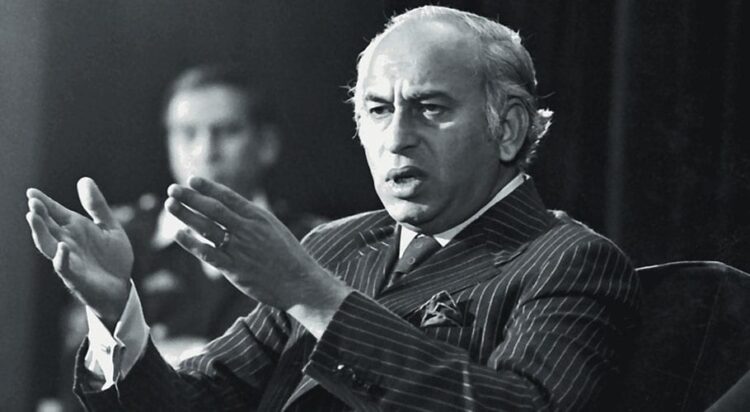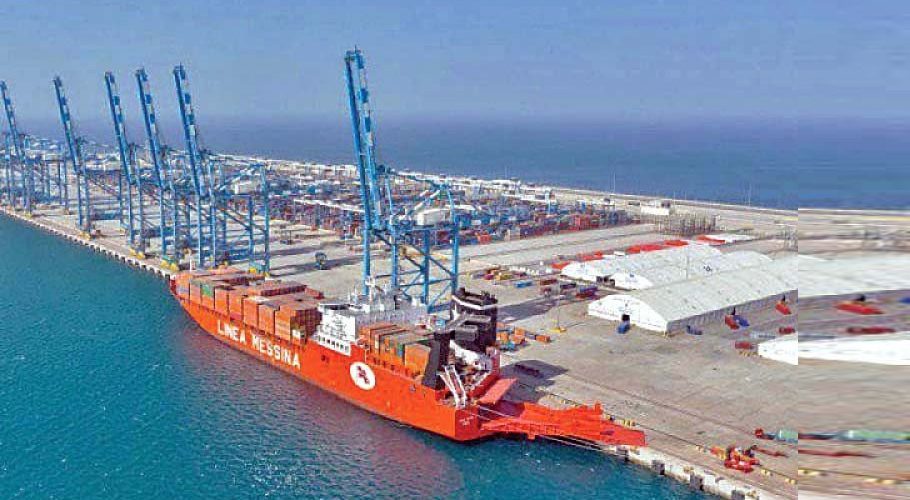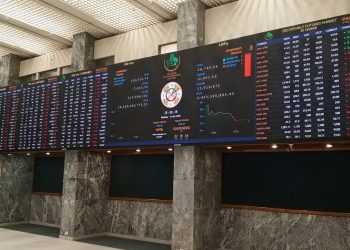The 97th birth anniversary of Zulfikar Ali Bhutto, the former prime minister and founder of the Pakistan Peoples Party (PPP), is being observed today (Sunday). Tributes are being paid across the country as political leaders and supporters commemorate his monumental contributions to Pakistan, including the drafting of the country’s first unanimous constitution, granting voting rights to citizens, and pioneering the nation’s nuclear program.
A floral wreath will be placed at Bhutto’s grave, and special prayers will be offered in his honor. The PPP has organized various programs throughout the day to celebrate his legacy.
Born on January 5, 1928, as the only son of Sir Shah Nawaz Bhutto, Bhutto began his early education at Bombay’s Cathedral High School. He later attended the University of Southern California in 1947 and then the University of California, Berkeley in 1949. After earning his degree in Political Science with honors in 1950, he was admitted to Oxford University and called to the Bar at Lincoln’s Inn in 1953.
Upon returning to Pakistan, Bhutto practiced law before entering politics. In 1958, he joined President Iskander Mirza’s Cabinet as commerce minister and became the youngest minister in Ayub Khan’s government. In 1963, he assumed the role of Foreign Minister, succeeding Muhammad Ali Bogra. One of his first major accomplishments was the Sino-Pakistan boundary agreement signed on March 2, 1963. Bhutto also played a crucial role in strengthening Pakistan’s ties with Turkey and Iran during 1964.
On November 30, 1967, he founded the Pakistan Peoples Party, which became a major political force in the country. Bhutto’s vision included fortifying Pakistan’s defense through the development of its nuclear program. Additionally, he oversaw the drafting of the 1973 Constitution, which was adopted unanimously and became the foundation for Pakistan’s parliamentary democracy.
President Asif Ali Zardari, in his message marking Bhutto’s 97th birth anniversary, praised the former prime minister for his visionary leadership, which he said reshaped Pakistan’s destiny and gave a voice to the voiceless.
“Today, we honor Shaheed Zulfikar Ali Bhutto, the leader who transformed Pakistan and became a beacon of hope for the marginalized,” said Zardari. “He was a statesman of unmatched intellect, courage, and charisma, and his legacy continues to inspire.”
President Zardari highlighted Bhutto’s achievements, including the 1973 Constitution, which laid the foundation for Pakistan’s parliamentary, democratic, and federal government. He also credited Bhutto with being the architect of Pakistan’s nuclear program, which played a crucial role in ensuring national security.
Zardari pointed to Bhutto’s successful efforts to strengthen Pakistan’s foreign relations, particularly with China, and his contributions to the nation’s industrial and technological progress. Notably, Bhutto facilitated the establishment of the Pakistan Steel Mills in Karachi in collaboration with Russia and expanded Pakistan’s defense industry.
Additionally, Bhutto’s leadership of the 1974 Islamic Summit Conference demonstrated his commitment to fostering unity among Muslim countries, further solidifying Pakistan’s leadership role on the global stage.
Zardari also acknowledged Bhutto’s focus on social justice, emphasizing his land reforms and initiatives aimed at uplifting workers and laborers, which significantly improved the lives of millions. His economic policies, which included the creation of public-sector enterprises and the expansion of education, health, and infrastructure, laid the groundwork for Pakistan’s development.
“Institutions like Allama Iqbal Open University and the emphasis on technical education were born out of his commitment to making knowledge accessible to all,” Zardari added.
The president concluded by recognizing Bhutto’s unwavering stance in favor of democracy. His ultimate sacrifice—choosing to face the gallows rather than compromise his principles—immortalized him as a symbol of resistance and resilience.




































